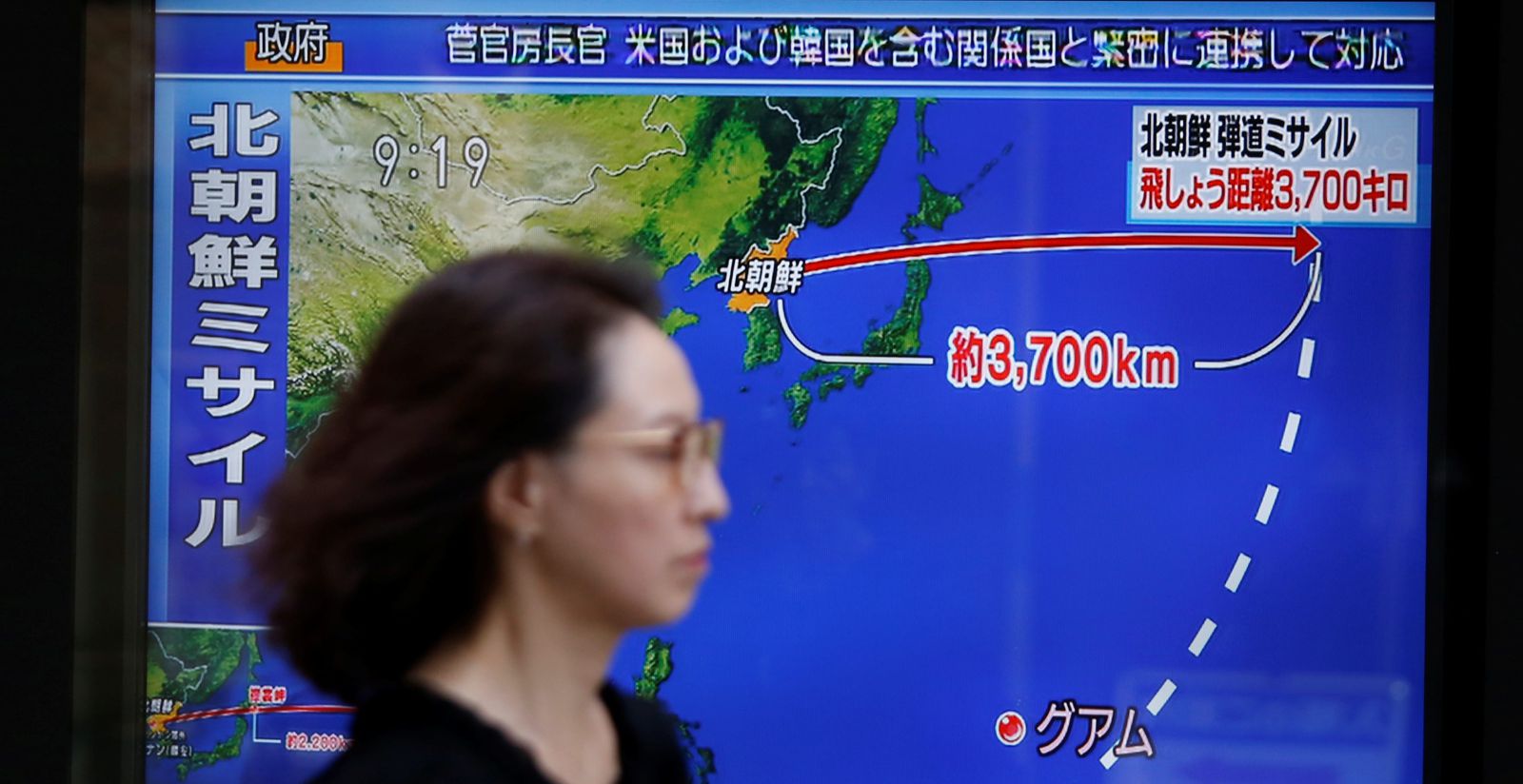North Korea: Have we reached a new status quo? – China’s latest political and current affairs news
A summary of the top news in Chinese politics and current affairs for September 15, 2017. Part of the daily The China Project newsletter, a convenient package of China’s business, political, and cultural news delivered to your inbox for free. Subscribe here.

Another missile from NK, and another round of posturing from the U.S. and China. Yet we still don’t know exactly how sanctions will affect the North Korean economy. Here’s your guide to the latest:
Another missile test kept the temperature high in northeast Asia, possibly cooking up something new:
- On September 15, North Korea launched its second missile through Japanese airspace, this time flying 2,300 miles before landing in the ocean east of Japan, Quartz reports.
- Even before the missile test, Jia Qingguo 贾庆国, dean of the School of International Studies at Peking University, wrote that “China must be more willing to consider talks with concerned countries on contingency plans” for war with North Korea, Reuters reports. Jia is an important adviser to Chinese leaders, and the way he is speaking openly of military-to-military talks with South Korea and the U.S. was previously taboo. More missile tests can only make this less taboo.
But in reaction to the missile test, the U.S. and China both repeated their usual lines, and China is unlikely to take further action now:
- The Chinese foreign ministry condemned the “provocative and escalating” missile tests, but emphasized that “China does not hold the key to the Korean Peninsula issue,” and argued that sanctions have already forced China to make “enormous sacrifices,” the WSJ reports (paywall).
- The U.S. doesn’t think China has sacrificed enough. Secretary of State Rex Tillerson reacted to the missile test with a statement that called on “all nations to take new measures” against North Korea, and specifically pushed for an oil embargo — again.
- It is well known that China does not want to take any action against North Korea so extreme that it might collapse the regime, which acts as a buffer between it and U.S.-backed South Korea. See here for AFP’s explanation of why shutting off oil is undesirable from China’s perspective, for practical reasons, and here for John Pomfret’s explanation of additional political reasons why China may not want to act tougher.
So far, a drought may have caused more damage than sanctions:
- Bloomberg reports on the difficulty of sanctions enforcement along the North Korea-China border, as a deeply rooted smuggling network ensures that even seafood from North Korea, one of the more visible banned items, is still available in small quantities across the border. “As long as there’s demand, smugglers will keep coming, no matter how hard Beijing tries,” said one trader.
- Two reports in SCMP also question whether sanctions have, or will have, much effect on an apparently thriving North Korean economy. One report notes that demand for luxury food items such as chocolate and alcohol is booming, while another points out the continued health of illegal sectors of the North’s economy, including selling arms and counterfeiting currency.
- But this data and reporting may hide a larger-scale reality in the Hermit Kingdom: that it may still be suffering the effects of a severe drought earlier in the year. CNBC reports on UN data that showed that areas essential to the production of cereal grains had 25 to 50 percent less rainfall this spring and summer than usual.
-
India
With China in mind, Japan, India agree to deepen defense / Reuters
Doklam row: Top PLA officer admits time not right for road, slams hawkish China / India Today -
Rohingya refugee crisis
China pledges aid for Rohingya refugees in Bangladesh, but ‘doesn’t want to damage ties with Myanmar’ / SCMP -
Taiwan
Taiwan jails mainland Chinese man on national security charge / Reuters -
Environment
Asia’s glaciers to shrink by a third by 2100, threatening water supply of millions / The Guardian
Shark hunt: Sea Shepherd activists bring Timor-Leste police to Chinese-owned boat / The Guardian -
Russia
China-backed rail project steams ahead in Russia / Caixin
Drills with Russia put Chinese navy to the test in unfamiliar waters / SCMP -
Southeast Asia
Chinese sub docks at Malaysian port for second time this year / Reuters -
Accidents
9 killed, 9 trapped in China mine, tunnel accidents / AP
Chinese rescuers try to reach 9 trapped construction workers / AP






